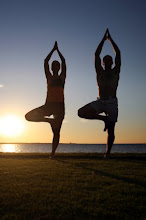As a first degree Reiki Practitioner, I find it interesting when I tell peoole that I study the art. They have many questions, which are good ones, but then they there is strong confusion regarding what Reiki is all about. Here is a brief lesson on Reiki.
Reiki pronounced “rey-key” is a method of natural healing based on the application of Universal Life Force. As an art of energy channeling Reiki can heal an individual who could be unbalanced or ill. Reiki can assist in healing many ailments including, cuts, bruises, emotional imbalance, and stress related illnesses.
Reiki was introduced in the 1800’s by Dr. Mikao Usui, who was a Christian minister, and principal of the Doshisha University in Koyto, Japan. In one of his lessons, a student asked him to teach the methods by which Jesus conducted his healing. Dr. Usui, began a quest to learn the skill. This journey lasted for about twenty-one- years. During these years he studied ancient sounds and symbols that are linked to the human body and nervous system, the foundation and connection of karma, and ancient sutras, which is Buddhist teaching written in Sanskrit. Reiki was introduced in the western world in the mid-1970’s, it has become a common practice among many.
The ancient art of Reiki may seem like a mystery. As many inquire about the treatments and benefits, others may want to understand the principles and discipline of becoming a Reiki Master. Reiki has three degrees. A student must study the practice, and undergo three degrees of attunement. There is a time frame which a student must adjust to each attunement before moving on to the next level. Upon completion of the third degree the student is now a Reiki Master and may teach Reiki. The following is a brief description of each level of the practice
Reiki I, the attunement in this level heals physical dis-ease in the person who receives it. At this time the Reiki I healer can primarily conduct self-healing techniques and heal someone who is physically present. The adjustment time for Reiki I attunement is three or four weeks and the individual may experience detoxification symptoms, extreme dreams of past experiences, and develop energy. After receiving Reiki I attunement it is important to practice daily self-healing for adjustment and practice.
Reiki II, the attunement in the second level increases the healing energy, and this level focuses on emotional and mental healing. During Reiki II three of the Reiki symbols are introduced. The adjustment time can take up to six months, it is important to continue the daily practice of self-healing. After Reiki II attunement a practitioner can practice the technique of distance healing, which allows healing of an individual not physically present.
Reiki III, the final attunement phase of Reiki is the Master/Teacher degree. The individual has mastered the discipline. Reiki III attunement creates a high level of spiritual energy. At this time the practitioner can teach Reiki and continue to practice on themselves and others.
Reiki is a wonderful healing technique. Each practitioner must understand and practice the Reiki Principles in their daily lives. There are many versions of the principles, but most are surrounded by the same theme. These principles are said to have been written by Dr. Usui.
Just for today I will give thanks for my many blessings
Just for today I will not worry
Just for today I will not be angry
Just for today I will do my work honestly
Just for today I will be kind to my neighbor and every living thing.
These are wonderful principles of everyone to practice in their daily lives.
Bibliography
Stein, Diane. Essential Reiki A Complete Guide to an Ancient Healing Art. Berkley California, The Crossing Press, 1995.
xo,
CC
Sphere: Related Content
Subscribe to:
Post Comments (Atom)



















4 comments:
wow, i've never heard of that before. thanks for sharing it with me!
you're an incredible woman cc. I hope you know that. Hugs, DE,
Thank you so much for the compliment DE! You are wonderful as well!!
xo,
CC
I've never heard of Reiki either, so thanks for enlightening me. I really love the 5 principles at the end.
Btw, I love the music on your blog. I've been meaning to say that for a while. :-)
Post a Comment